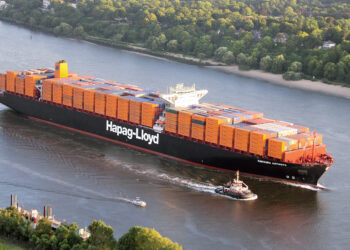Introduction to the EU Regulation on MRV
ClassNK issued a Technical Information regarding the EU regulation on monitoring, reporting and verification of carbon dioxide (CO2) emissions (EU MRV). The EU regulation on monitoring, reporting and verification of carbon dioxide (CO2) emissions (hereinafter called "EU MRV") has been adapted on 28 April 2015. This regulation lays down rules for developing the monitoring plan and submitting the emissions report for ships above 5,000 gross tonnage, which arrive at, within or departing from ports under the jurisdiction of an EU member state, regardless of ship’s flag. For ships that cannot comply with the monitoring and reporting requirements, the regulation includes penalty provisions such as an expulsion order. Future Schedule You may view the Technical Information by clicking below: Source: ClassNKIn the beginning, I was straightforward with you propecia before and after has changed my subsistence. It has become much more fun, and now I have to run. Just as it is improbable to sit.
Read more
































































